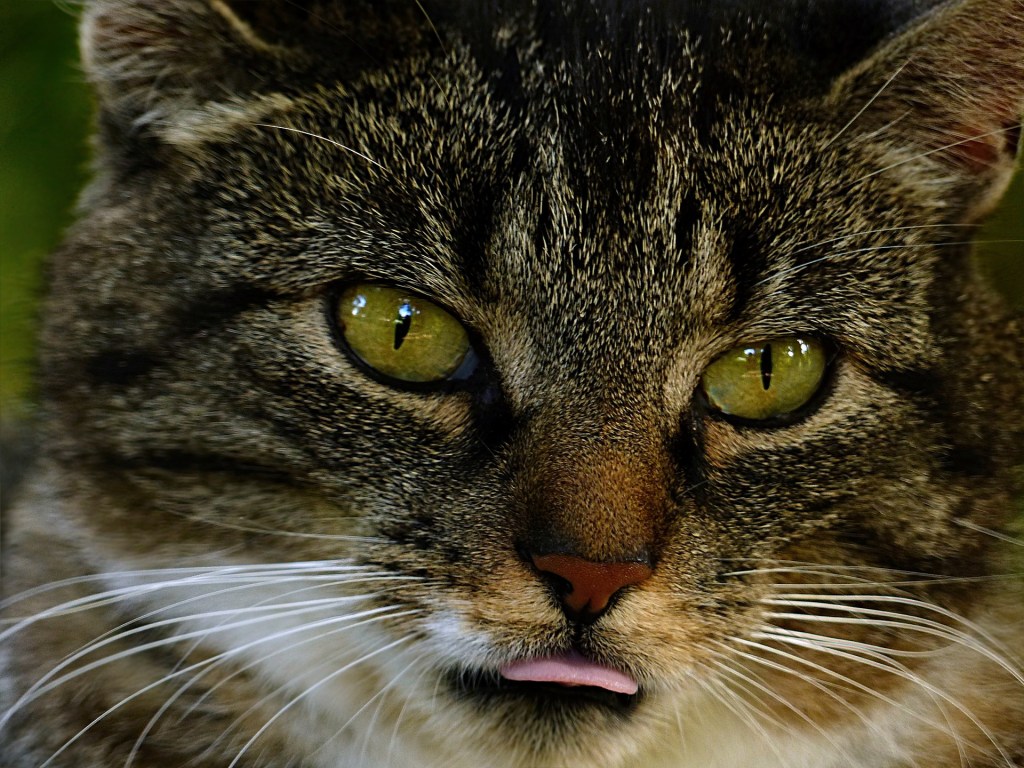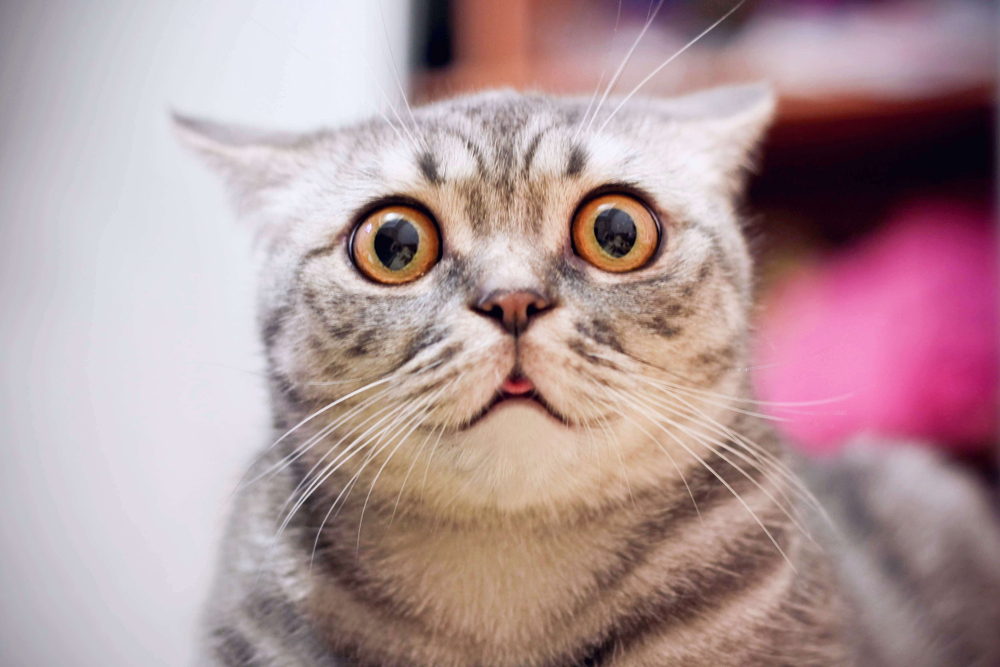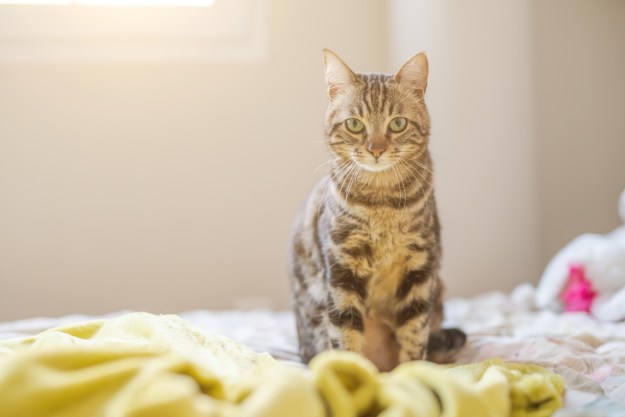
Have you ever wondered why cats stick out their tongues? Maybe you’ve noticed your cat doing it and wondered if something might be wrong with them. Try not to worry about it. Most cats stick their tongues out occasionally, leading to this behavior being called a “blep” in internet slang. (Search for cat bleps online when you’re feeling down; the adorable images are the perfect pick-me-up.)
What causes cats to blep? We’ll explore a few potential reasons behind this strangely adorable behavior.
Why do cats stick out their tongues? Do you need to worry or not?
Your cat is exploring with their tongue
One of the most common reasons for an exposed tongue is that your cat is quite literally exploring their surroundings. When your cat leaves their mouth open and tongue out, they’re collecting pheromones on their tongue — this is called the Flehmen response. Those pheromones give your cat important information about other cats around, including whether they’re in heat. Your cat may be assuming this strange posture simply to get additional information about the surrounding cats.
Your cat is missing teeth
Sometimes cats let their tongue hang out a little because they’re missing their canine teeth. These teeth help keep the tongue within the mouth, so if your cat is missing one or two of these teeth, it’s more likely that their tongue will slip out from time to time. No worries!!
Your cat is trying to please you
You might even unknowingly reinforce your cat’s sticking their tongue out. If you laugh at your cat, give them attention, or give them a treat when they do this behavior, they may quickly learn that sticking their tongue out gets a positive response. You might start to see your cat do this repeatedly, mainly to get a positive reaction from you. Whether that’s good or not is up to you.
Your cat is relaxed
Sometimes when cats are relaxed, their tongues naturally slip out. This happens because your cat’s jaw loosens up as they relax, so their mouth opens up just enough to let the tongue through.
If your cat is sticking their tongue out because they’re relaxed, it’s most likely to happen when you’re patting them or when they’re asleep. Once your cat wakes up or focuses on something else, you’ll probably notice them pull their tongue back into their mouth, swallow, and turn their attention elsewhere.
Your cat has something stuck to their tongue
Unlike human tongues, cat tongues are dry and rough. They contain thousands of papillae, which are tiny barbs that help cats eat and drink water. However, it’s also possible for something to get stuck to them. Think about how annoying it is when a hair gets in your mouth — and then think about how much more annoying that must be for a cat!
Your cat is grooming
Despite their cute appearance mid-blep, your cat’s tongue is actually a powerful instrument adorned with small, sharp hooks that create that distinctive, sandpaper-like texture. These hooks effectively eliminate loose hair and debris from their fur. During periods of rest from grooming, cats might casually let their tongues hang out.
Your cat has dental issues
While in numerous instances it’s normal for your cat to stick their tongue out a little bit, there can be physical issues behind this behavior that require more attention. If your cat is having a dental issue, they might stick their tongue out in response. Issues like an abscess, gum disease, or even tooth decay can be painful and might elicit this behavior. Inflammation or an infection can also prompt your cat to stick their tongue out.
Your cat has health issues
Other significant health issues like stomatitis can cause significant discomfort and might make your cat stick their tongue out in response. Sometimes a tongue hanging partially out can even indicate that your cat has a health issue like dementia.
If you’re worried that your cat’s behavior is unusual and might be caused by a health issue, schedule an appointment with your vet. Your vet will probably start with a thorough examination of your cat’s mouth and throat. Then, they’ll likely do an overall wellness exam to make sure there aren’t any other significant health problems going on.

A cat sticking their tongue out definitely tends to be normal, though. How often you see this behavior really depends on your cat; some seldom do this, while others might stick their tongues out several times a day. With many potential causes behind this behavior, you will need to observe your cat carefully to determine just what’s prompting this.
In most cases, the behavior is harmless, but sometimes it can indicate an underlying health issue that needs a look. If your cat is sticking their tongue out an unusual amount, or if you see it paired with excessive drool or blood, call your vet right away to have your cat checked out. Otherwise, keep an eye on this behavior just in case, but chances are your cat is just fine. Enjoy it!
Editors' Recommendations
- Wondering why cats chirp? Fascinating reasons why your cat chirps at birds (and you)
- There’s a totally normal reason cats throw up after eating grass – here’s why
- Your cat trilling is actually a good thing – here’s why
- Why do cats like to sleep on the bed with people? This common behavior explained
- Why you should feel honored if your cat sleeps at your feet


